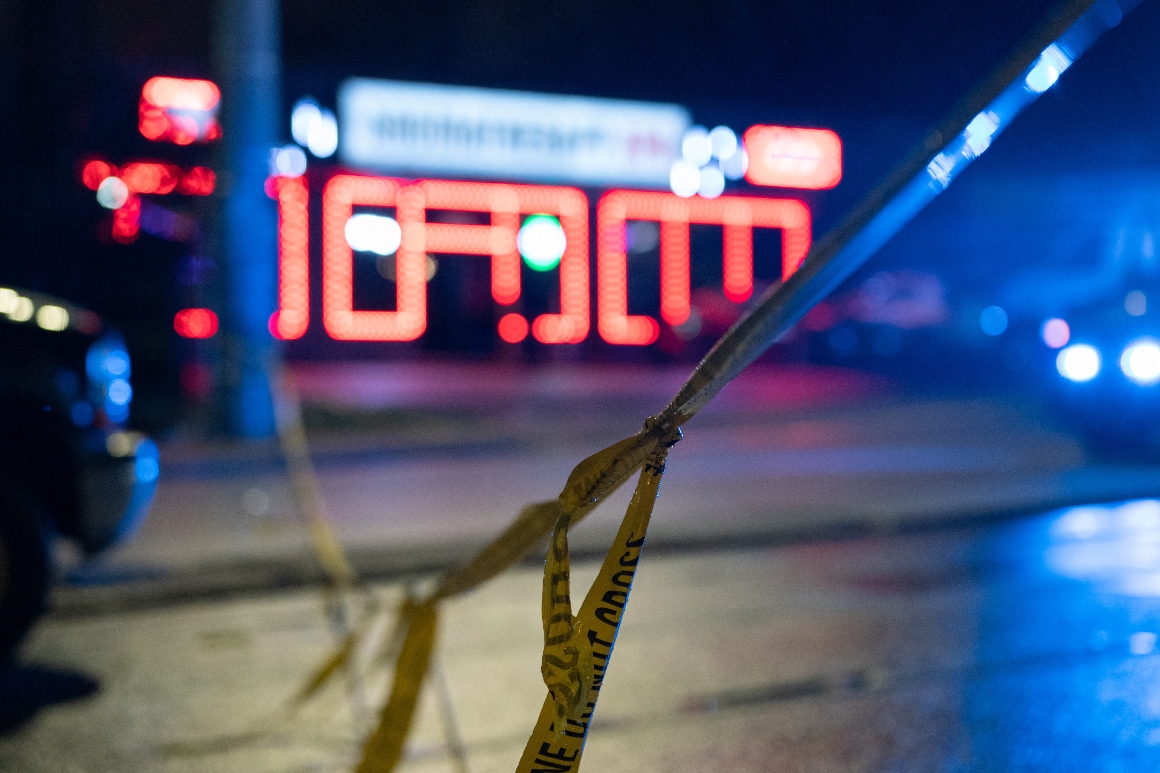“What does decrease crime is being able to provide cultural resources,” Taylor said. “So people have stable places to live, so that people have food, people have stable communities and safe communities. That’s what decreases crime.”
But leaders like Joyce Sheperd, a city councilmember who represents the Atlanta district that includes Pittsburgh, are more pro-police, arguing that a law enforcement presence combined with community initiatives will help alleviate crime. She sponsored legislation that authorized the city to lease land to the Atlanta Police Foundation for the construction of a $90 million, 150-acre police training facility on the outskirts of the city. The city council adopted the plan in September.
The Community Movement Builders and other activist groups protested construction of the training facility from its earliest days. It drew the ire of city leaders like Sheperd, who has been at odds with the organizing group and said their efforts were counterproductive.
“There were people who were anti-police basically saying that we should not build out a police academy … they came and protested in front of my house on my porch,” said Sheperd.
The movement against the training facility became known as “Stop Cop City” and has grown into one of the most heated debates in Atlanta around use of municipal funds and the role of police in alleviating crime. However, because construction of the training facility is likely to take years to complete, it won’t have an impact on the current crime spike. What it will do instead, says Kamau Franklin, founder of the Community Movement Builders, is boost morale among the city’s police force after the Floyd unrest while negating the needs of the communities they are meant to serve.
“This is not just a ‘both sides’ argument around what’s the best way to solve crime,” Franklin said. “This is also about perpetuating a narrative that the police were somehow victims last year.”
The pandemic-related crime wave is a leading issue in municipal elections across the country. Atlanta voters will choose a new mayor on Nov. 2, and the two top-polling candidates, former Mayor Kasim Reed and City Council president Felicia Moore, have shaped their campaign pitches largely around their approaches to crime.
Reed’s familiarity with Atlanta — and his relentless focus on crime — has helped vault him to the top of the candidate pool. In an interview, the former mayor called crime the “number one, two and three issues” in Atlanta “because there is absolutely no place in Atlanta that’s immune from it.”
The pandemic “pushed people who are already on the margins in terms of income and employment, to have to, or to turn to, violence,” Reed said. “I don’t think ‘have to’ is the appropriate word. But I think that it certainly influenced what’s going on.”
Increased policing is part of his answer. His campaign platform includes hiring 750 more police officers in addition to revitalizing community initiatives. In early October, the city’s largest police union endorsed Reed for a third term.
“Anyone who says that more police don’t reduce the level of crime, that’s just simply not the case,” Reed said.
Also at issue are the optics associated with the uptick in violence in Atlanta, a capital city that is home to several large business hubs in a state that has become a red-hot focus of national politics. Reed’s opponent, city council president Moore, sees the issue of crime as not just an outgrowth of the pandemic in Atlanta but a long-term challenge.
Rising crime, said Moore, “threatens our city, and our reputation as a safe city and a place to come work, play and live.”
Her plan to decrease crime includes a heavier investment in courts and youth, as well as a promise to have a one-on-one conversation with at least 98 percent of the city’s police force.
“There’s no one, magic-bullet solution,” Moore said. “It is dealing with the root causes, but it’s also dealing with immediate action that needs to be taken to make sure we have the police presence that we need on our streets, making sure that our court system … is working appropriately and not allowing repeated violent offenders back out on the street.”
However the mayor’s race turns out, Topalli says he hopes the pandemic crime wave has helped reopen a needed debate over the causes and cures for violent crime. And with luck, that debate will ultimately expand the definition of public safety — an expansion “that opens up the room for mental health, opens up room for public health, it opens up room for things like housing, education, community partnerships,” he said.
Related posts:
Views: 0
 RSS Feed
RSS Feed

















 October 28th, 2021
October 28th, 2021  Awake Goy
Awake Goy 
 Posted in
Posted in  Tags:
Tags: 
















